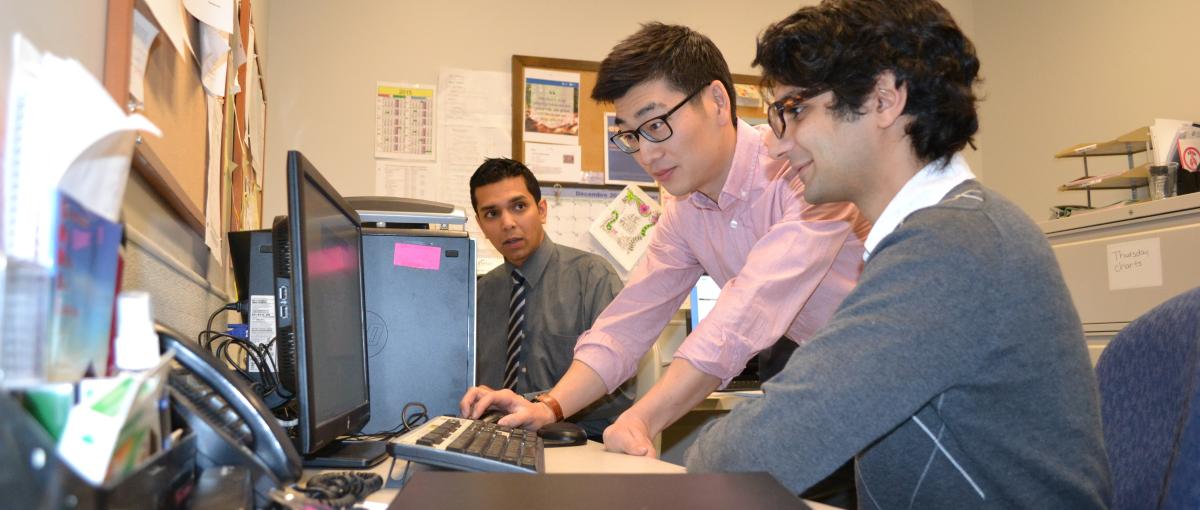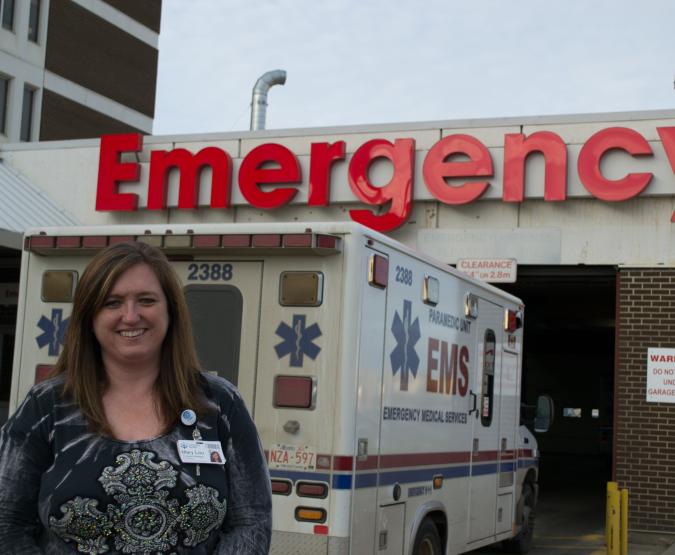ER support program for seniors flourishing
Assessment and intervention in ER key to providing proper treatment for seniors.

June 27, 2016
By Bernie Poitras, Senior Communications Advisor, Covenant Health
When Roza Cerezo brought her elderly mom, Emma, into the Misercordia Emergency Room due to a fall, it was a much different visit from previous ones.
In addition to the fall, her mom was confused and needed a more thorough assessment.
“We were at the right place at the right time,” says Roza. “My mom received excellent care; she was interviewed by a physician and was admitted to the Geriatrics unit the same day.”
Roza’s story is exactly how Dr. Jed Shimizu envisions the Geriatric Evaluation and Management – Emergency Department (GEM-ED) program working. The lead physician at the Misericordia’s Department of Geriatrics, he says the program’s main goal is to decrease seniors’ dependence on hospital emergency rooms.
“It’s also about ensuring the right supports are there in the seniors’ community,” says Jed. “The ER staff flag for us seniors who need support, we see them in the ER, then we follow up with the patients to see how we can support their ongoing needs. It avoids seniors being admitted unnecessarily into the hospital.”
Jed says since the program started in 2013, over 300 seniors have come through the ER to be assessed and referred to the Geriatrics unit. It’s the only facility in Edmonton to have a geriatrics physician embedded in the ER.
The GEM-ED program was also designed to give ER staff more support when it comes to assessing seniors' medical needs.
“The ER doctors are very pleased with this help because they’re not experts in caring for seniors,” says Mary Lou Renaerts, former Program Manager, Misericordia Emergency Department. “To have that added expertise in the department has added great value to our work and our patient experience.”
Jed says that as more ERs see more seniors, the need to help flag their medical needs and refer them to programs and other support in the community increases too. He says seniors come through the ER mainly for one of three reasons: cognitive issues (learning, memory, perception, problem solving), delirium or mood.
“For a patient with dementia, they have difficulty taking directions, so the patient will need supports to break that cycle, change the habit and ensure the care is appropriate,” says Jed.
A few weeks after a patient is assessed, GEM-ED staff will follow up with the patient or their family to see whether recommendations are being carried out.
“This helps determine if the program is successful and also reminds the patient to seek support through their general physician, a day program, home care or other support,” says Ahthesham Sheikh, Project Manager, Department of Geriatrics. Along with Jed, Ahthesham works with a third team member, Fahim Rajabali, Registered Nurse, Geriatric Assessment, to make sure patient followup is completed.
For Roza, her story has a happy ending. She reports that her mom is doing very well, progressing in her care treatment, and that her health has vastly improved over the past eight months.
Dr. Shimizu’s Tips for Caring for Elderly in the Community
- Falls, forgetfulness and changes in mood are not normal parts of aging.
- Be proactive: if you notice changes like these, talk to your family doctor.
- Caregivers must take time to care for themselves.
- Talk to your family doctor or Home Care case manager if you have questions about accessing geriatric services in the community.
Top 10 reasons seniors are referred to GEM-ED program from the Misericordia Emergency Room
- 2 per cent medication review
- 16 per cent decreased mobility
- 20 per cent dementia
- 16.5 per cent falls
- 16% home supports
- 6 per cent depression
- 2.5 per cent chronic pain
- 3 per cent failure to cope
- 4 per cent delerium
- 21 per cent medically complex
